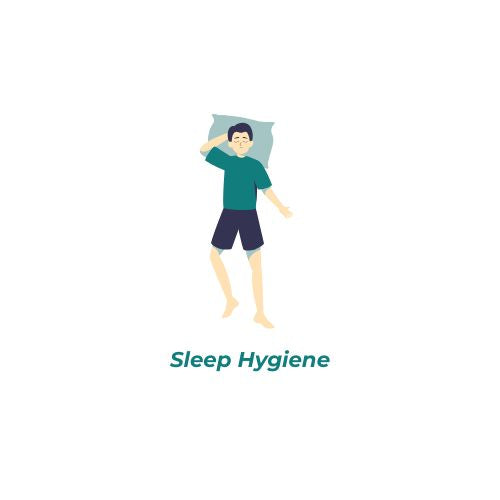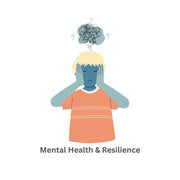Sleep Hygiene

The Science of Sleep, Bedtime Rituals, and Rest as a Tool for Emotional Healing and Self-Awareness
In a world that rewards hustle and overstimulation, sleep often gets pushed aside. But quality sleep is not a luxury—it’s a core pillar of mental, emotional, and physical health. Good sleep hygiene is more than just going to bed early; it’s a conscious practice that supports healing, self-awareness, and overall well-being.
This blog explores the science of sleep, practical bedtime rituals, and how practices like affirmations, meditation, and emotional healing can help you reclaim restful nights and brighter days.
Why Sleep Matters More Than You Think
Sleep isn’t passive—your body and brain are hard at work repairing, processing, and restoring. During deep sleep:
- Your brain consolidates memories and emotions.
- Hormones that support mood and immunity are released.
- Your nervous system resets from daily stressors.
Poor sleep is linked to anxiety, depression, weakened immunity, brain fog, and chronic inflammation. But improving your sleep hygiene can reverse many of these effects over time.
Foundations of Good Sleep Hygiene
Sleep hygiene refers to healthy habits that promote restful, consistent sleep. Here are science-backed essentials:
- Stick to a consistent sleep schedule (even on weekends)
- Limit screens at least 1 hour before bed
- Create a cool, dark, quiet sleep environment
- Avoid caffeine, heavy meals, and alcohol before bedtime
- Engage in calming pre-sleep rituals
Creating a Soothing Bedtime Ritual
A bedtime routine isn’t just for kids. It signals to your body and mind that it’s time to shift into rest mode.
Try incorporating:
- Herbal teas like chamomile, passionflower, or lemon balm
- A warm bath with magnesium salts or essential oils
- Gentle stretching or restorative yoga
- Journaling to process thoughts and emotions
- Breathwork or body scans to release tension
Using Meditation to Ease Into Sleep
Meditation before bed can quiet the mind and prepare the nervous system for deep rest.
Try this simple sleep meditation:
- Lie on your back with one hand on your heart and one on your belly.
- Inhale for 4 counts, exhale for 6.
- Silently repeat: “With each breath, I let go.”
- Continue for 5–10 minutes or until you drift into sleep.
Affirmations for Restful Sleep and Emotional Calm
Affirmations help calm racing thoughts and shift your mind into a relaxed state.
Repeat these quietly or write them in a sleep journal:
- “I am safe, I am held, I am at peace.”
- “I release the day and welcome deep, healing sleep.”
- “My mind and body know how to rest.”
Over time, these positive suggestions create a more peaceful bedtime mindset and reduce nighttime anxiety.
Sleep as Emotional Healing
Rest is not just physical—it’s emotional. While you sleep, your brain processes emotions from the day. When you’re well-rested, you’re more emotionally resilient, present, and self-aware.
Tips to support emotional healing through sleep:
- Reflect on your day with compassion, not judgment.
- Acknowledge what you’re holding on to and set an intention to release it.
- Use your bedtime routine as a form of self-parenting—calm, nurturing, and kind.
Final Thoughts: Sleep Is Sacred
Sleep is where your body repairs, your mind resets, and your emotions integrate. By honoring your need for rest and adopting intentional rituals—like affirmations, meditation, and emotional reflection—you’re not just improving sleep. You’re practicing deep self-care and emotional wellness.
Ready to reclaim your rest?
Explore our guided sleep meditations and hypnosis audios, calming herbal blends, or 1:1 support to help you create the bedtime you've been dreaming of.






